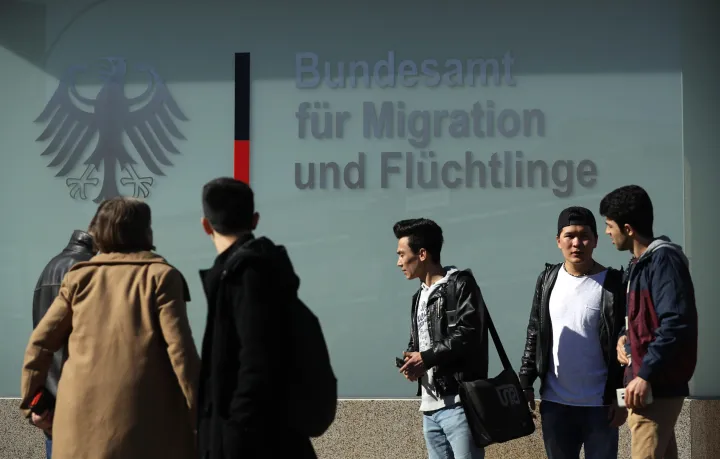The German government has resumed deportations to Afghanistan, flying 28 convicted criminals of Afghan nationality back to their home country on Friday. This controversial move comes days before crucial regional elections in which migration has emerged as a central campaign issue.

Chancellor Olaf Scholz confirmed the action at a news conference in Saxony, stating, “I have announced that we will also deport criminals to Afghanistan. We have prepared this carefully without talking about it much.” The deportations mark a significant shift in policy, as Berlin had suspended returns to Afghanistan in 2021 due to human rights concerns following the Taliban’s takeover.
The decision to resume deportations follows recent violent incidents that have intensified public debate on migration and security. A fatal stabbing linked to the Islamic State at a city festival last week and a knife attack in June, where an Afghan man killed a German policeman, have increased pressure on the coalition government to tighten asylum policies.
The timing of this policy reversal is notable, coming just days before Sunday’s elections in the eastern states of Saxony and Thuringia. Polls indicate that the far-right Alternative for Germany (AfD) party, known for its anti-migration stance, is leading in these regions.
According to reports from Spiegel magazine, the Kabul-bound flight departed from Leipzig early Friday morning, carrying 28 convicted criminals. The operation followed months of secret negotiations with Qatar acting as a mediator. The German government has expressed gratitude to “key regional partners” for their support but has not named these partners specifically.
The resumption of deportations has sparked intense debate within Germany. Vice Chancellor Robert Habeck emphasized to Reuters that the right to asylum in Germany must remain untouched, suggesting a balancing act between tightening policies and maintaining humanitarian commitments.

However, the move has drawn criticism from human rights organizations. ProAsyl, a German NGO providing assistance to asylum seekers, condemned the action. Tareq Alaows, ProAsyl’s refugee policy spokesperson, called it “a declaration of bankruptcy for the constitutional state” and warned that it could lead to an irresponsible normalization of relations with the Taliban regime.
Responding to these concerns, a German foreign ministry spokesperson clarified that the government would not normalize relations with the Taliban and that the deportation should not be interpreted as a step towards doing so.
The German government is also exploring the possibility of deporting individuals who have committed serious crimes or are deemed terrorist threats to Syria, another country to which deportations have been banned. A recent court ruling in Muenster has potentially opened the door for such actions, stating that it no longer saw any general danger of civil war for asylum seekers from Syria.
This policy shift occurs against the backdrop of changing asylum trends in Germany. In the first seven months of 2024, the number of asylum seekers in the country dropped by 19.7% compared to the previous year, totaling 140,783 applications. The largest groups of applicants came from Syria (44,191 applications) and Afghanistan (22,698 applications).
The resumption of deportations to Afghanistan revives memories of a controversial 2018 incident when a German interior minister boasted about deporting 69 Afghans on his 69th birthday. The subsequent suicide of a 23-year-old deportee upon arrival in Kabul led to a public backlash against the policy.
As Germany navigates this complex issue, balancing domestic political pressures with international human rights obligations, the debate over migration and asylum policies is likely to remain at the forefront of national discourse, particularly as regional elections approach.



